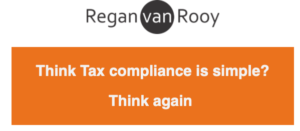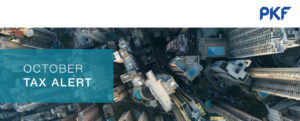July 31 — Changes proposed by South Africa’s National Treasury would subject controlled foreign companies operating in that country to the divisionary rules regarding their inbound and outbound sale of goods that were effective before the rules were amended in 2011.
The move aims to combat profit shifting and protect the domestic tax base because applying only the existing transfer pricing rules leaves the domestic tax base “vulnerable” to offshore profit shifting, the government said.
The draft Taxation Laws Amendment Bill 2015 (TLAB) and the draft Tax Administration Laws Amendment Bill 2015 (TALAB) were released July 22 for public consultation to seek feedback on a raft of new tax changes that were proposed in the 2015 annual budget in February.
One of the changes proposed in the TLAB would reverse the 2011 amendments to the divisionary rules regarding CFCs’ inbound and outbound sale of goods.
Prior to 2011, CFC provisions on sales contained three sets of diversionary income rules:
• CFC inbound sales, applying to the sale of goods by the CFC to any connected South African resident, subject to some exemptions;
• CFC outbound sales, applying to the sale of goods by the CFC to a foreign resident or to unconnected South African residents where those goods initially were purchased from connected South African residents, subject to some exemptions; and
• CFC connected services rules, applying to CFCs performing services to a connected South African resident, also subject to some exemptions.
In 2011, the exemptions concerning the diversionary income rules on CFC inbound sales were narrowed, while the rules on CFC outbound sales were abolished because the authorities believed that the transfer pricing rules could be applied as an alternative.
Transfer Pricing ‘Not Under Control.’
The government claimed “the legislation was unnecessary because SARS had transfer pricing under control,” … “Now, they are bringing the old anti-avoidance legislation back, indicating that transfer pricing is not under control,”…
“While transfer pricing rules can be applied to prevent the shifting of income offshore through the sale of goods and services, the CFC diversionary rules are more expedient in preventing shifting of profits offshore through these transactions,” the government said in the explanatory memorandum accompanying the draft legislation. “The removal of diversionary rules in respect of the CFC outbound sale of goods resulted in the CFC rules being less effective in immediately addressing profit shifting by South African resident companies. Transfer pricing auditing processes by their nature often take long[er] to be finalized and therefore relying on transfer pricing solely leaves the South African tax base vulnerable to base erosion practices,” it said.
Consistent with the pre-2011 regime, the proposed changes would apply to CFC inbound sales except when:
• the CFC purchases goods from an unconnected person in the same country of residence as the CFC;
• the CFC is engaged in the creation, extraction, production, assembly, repair or improvement of goods that involves more than minor assembly or adjustment, packaging, repackaging and labelling;
• the CFC sells a significant quantity of goods of the same or similar nature to unconnected persons at comparable prices, after taking into account whether the sales are wholesale or retail, volume discounts and other geographical differences such as location costs of delivery; or
• similar goods are purchased by the CFC mainly within the country in which the CFC is resident from unconnected persons in relation to that CFC.
For outbound CFC sales, the rules would be completely reinstated in line with their application before 2011. As such, the rules would apply to CFCs selling goods to a foreign resident or to unconnected South African residents where those goods initially were purchased from connected South African residents.
However, exemptions will apply if:
• those goods purchased by the CFC from a connected South African resident amount to an insignificant portion of the total goods;
• the CFC is engaged in the creation, extraction, production, assembly, repair or improvement of goods that involves more than minor assembly or adjustment, packaging, repacking, and labelling;
• the products are sold by the CFC to unconnected persons for physical delivery to customers’ premises situated in the country in which the CFC is resident; or
• the same or similar products are sold by the CFC mainly to unconnected persons for physical delivery to customers’ premises in the country in which the CFC is resident.
If approved by parliament, the changes would have effect from Jan. 1, 2016, and would apply for foreign tax years of CFCs ending during assessment years beginning on or after that date.
Other Changes Proposed
Businesses operating in South Africa also would be subject to a raft of new tax changes proposed in the two bills.
The TLAB 2015 proposes revising the definition of immovable property to tax mineral rights in the same manner as foreign persons who sell South African immovable property. The government said the change is necessary because the definition doesn’t currently include the right to mine or prospecting or right to work mineral deposits and other natural resources. It said that because South Africa has more than 73 tax treaties in force, it is important that the domestic definition is as closely aligned with the definition of immovable property in the OECD Model Tax Treaty as possible in order to order avoid any possible anomalies.
Although Engel noted that the proposal is in line with OECD policies, he warned that it will make “mining exploration harder because junior miners make all of their money this way so this could hurt mining investment.”
Referring to the other measures proposed in the bill, Engel also added that there are other crucial developments in the draft bills. For example, a major development is the proposed amendment to the definition of interest for withholding tax purposes, which would be retroactive to March 1, 2015. “This will catch many companies unaware,” Engel said. “The tax may also be levied on amounts before it is even paid,” meaning that the firm owing interest, has to pay SARS before the creditor, he said.
In summary, the TLAB 2015 aims to give effect to the following proposals announced in the 2015 budget review:
• closing a loophole to ensure consistent tax treatment on all retirement funds;
• closing a loophole to avoid estate duty through excessive contributions to retirement funds;
• amending the tax implications of the outright transfer of collateral
• revising the transitional tax issues resulting from the regulation of hedge funds;
• amending measures to counter tax free corporate-migrations; and
• withdrawing special foreign tax credits for service fees sourced in South Africa.
Meanwhile, the TALAB proposes:
• taking into account medical scheme tax credits for pay-as-you-earn
• introducing rules on the collection of information by South African financial institutions and an associated obligation on the financial institutions to register with SARS;
• extending the period of limitations for issuing assessments under narrow circumstances;
• clarifying qualifying persons for voluntary disclosure, relaxing the requirements for voluntary disclosure and broadening the ambit of voluntary disclosure relief; and
• introducing greater transparency and the automatic exchange of information between tax administrations as an important step forward in countering cross border tax evasion and aggressive tax avoidance.
The draft laws are open to public comment until Aug. 24, 2015, with public workshops expected to take place in September. Once further revisions have been made, the government will table the legislation in parliament for approval.
For More Information
The draft bills can be found at http://www.treasury.gov.za/public{780f53c297e2c008074d23b865a0ce0b35a4f08852d8e1e49466a5a902c4e44e}20comments/TLAB{780f53c297e2c008074d23b865a0ce0b35a4f08852d8e1e49466a5a902c4e44e}20and{780f53c297e2c008074d23b865a0ce0b35a4f08852d8e1e49466a5a902c4e44e}20TALAB{780f53c297e2c008074d23b865a0ce0b35a4f08852d8e1e49466a5a902c4e44e}202015{780f53c297e2c008074d23b865a0ce0b35a4f08852d8e1e49466a5a902c4e44e}20Draft/ and http://www.sars.gov.za/Legal/Preparation-of-Legislation/Pages/Draft-Documents-for-Public-Comment.aspx.






